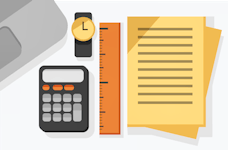UBS Interview Questions
All products and services featured are independently selected by WikiJob. When you register or purchase through links on this page, we may earn a commission.
- Online Numerical Reasoning Test
- First Round Interview & Assessment
empty
empty
- Assessment Day
empty
empty
empty
empty
The application process at UBS consists of:
-
Online application form
-
Online numerical reasoning and logical reasoning test (SHL)
-
First round interview and assessment, which includes:
- Competency-based interview
- Numerical Test
-
Assessment centre consisting of:
- Written numerical reasoning test (SHL)
- Presentation
- Interview
- Group exercise
Online Numerical Reasoning Test
The online test is designed by SHL. There are 8 practice question and 20 real questions. You will have 21 minutes to complete the test.
First Round Interview & Assessment
The UBS hiring process is heavily competence-based, so it is essential that you familiarise yourself with the company's 7 core competencies that are sought in all employees:
- Problem Analysis
- Judgement and Decision-Making
- Innovation
- Communication and impact
- Drive and commitment
- Teamwork and collaboration
- Planning and organizing
Come prepared with several examples of how you exemplify these qualities, and try to keep these in mind when answering any questions.
UBS also offers the following tips for interview on their website:
- Be prepared
- Use your contacts
- Build a relationship
- Make the right impression
- Don't panic
- Be honest
- Play to your strengths
- Use your initiative
- Show passion
In some cases, the first interview may be conducted as a telephone interview.
Questions you are likely to be asked include:
- What is your understanding of the division to which you have applied?
- What are your capabilities?
- Why i should select you?
- How to work as a team player and a team leader?
- What other banks have you applied to?
- What differentiates UBS from other banks?
First Interview
The interview is entirely competency-based. You will be required to provide examples of when you have:
- Worked in a team
- Shown commitment to working in banking
- Been motivated to complete a task, and when you have motivated others
- When you have been successful in completing a task
- When you have been disappointed in failing a task
You will want to discuss experiences you had at university, work and volunteering, explaining how you handled each scenario and what qualities you developed through the experience, and finally what you would bring to UBS.
You will also be asked:
- Why UBS?
- Why your chosen business area?
However, beware that some interviewers may decide to skip briefly over competencies and spend some time discussing current economic/business affairs or even items from your application/cv.
Numerical Test
The numerical test is demanding. It is 35 minutes long and consists of 40 questions. Move quickly and accurately and ensure you move on as soon as the allocated time for the question is up. The test is designed by SHL. Come prepared with a calculator.
Assessment Day
The assessment day consists of:
- Numerical Test
- Presentation
- Interview
- Group exercise
Numerical Test
A final test is administered, and is no less demanding. Failure to score adequately on this test may rest in dismissal from the rest of the assessment centre. It is 35 minutes long and consists of 40 questions. Move quickly and accurately and ensure you move on as soon as the allocated time for the question is up. The test is designed by SHL.
Presentation
You will be given a stack of notes (around 10 pages) regarding a well known global company. You will then have 45 minutes to prepare a response, by yourself, to the question:
"What must Company X (e.g. Nike) do to continue to be successful?"
You will be asked to present this response, with the aid of a flip chart, to a director for no more than 10 minutes.
It is suggested that you structure your response according to SWOT (Strengths/Weaknes/Opportunities/Threats).
Clarity and conciseness are essential.
This presentation will be followed by a question and answer session related where you can reasonably expect whatever you have said to be heavily scrutinised and criticised. Make sure you speak clearly and logically and back up your arguments, and to manage your time effectively.
No technical or outside knowledge not given during the case study is required.
Interview
The second interview, like the first, is a competency-based interview. It differs from the first in that you will be assessed against competencies not yet covered in the first interview, and may face a few technical questions mixed in, so it is of course still important to be aware of the current state of financial markets.
For internships, this may be your first interview. You will spend approximately half an hour talking to a director on topics such as:
- Choice of degree?
- What does the job entail?
- Example of teamwork?
- Current events?
Group Exercise
You will be allocated into a group of, perhaps, 8 candidates. You will each be given some information about the scenario which you will have to discuss and have 10 minutes to read it alone.
You will have to discuss the marketing strategy for launching a new Nike product: Footwear for those aged 60+. What are the features of the new product? How should Nike market it, given a budget of $1 million? Your group must come to a consensus on how to allocate the budget, and you may be divided into different departments, and have to argue for why your department should receive a certain amount of funds.
The company and scenario varies, but it will be the same company you presented on in the previous exercise.
The group discussion will last 20 minutes and you will be closely observed by graduate recruitment assessors throughout. Take leadership when possible but do not overpower others, encourage quieter members to have their ideas heard, and make efforts to keep the group focussed and within time constraints. Your interaction with team members in this task is key in this exercise, so be aware of the group dynamic in addition to the content of your ideas.





